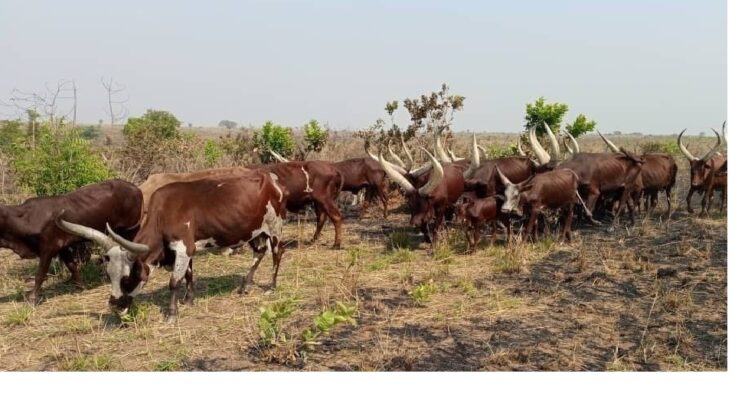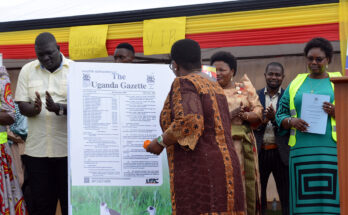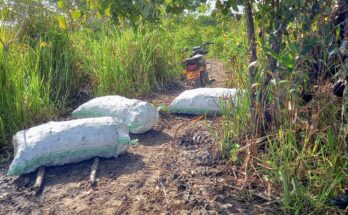PHOTO: Grazing cattle in Okidi Parish, Attiak Sub-county -Photo by Chowoo Willy
For years, whenever the dry season sets in, Karamojong cattle herders knew it was time to move to distant lands in search of water and pasture for their animals.
The time-honoured practice also involved negotiating with cultural elders from the neighbouring regions, making it easier for the cattle herders to move freely with their animals.
But in recent years, the situation has changed: communal lands for grazing animals are shrinking and climate shocks are becoming extreme.
With the number of districts surrounding semi-arid Karamoja increasing, cattle herders are also finding it hard to get written clearances to pass through district boundaries with their animals as they search for water and pasture.
At times, the delays by district administration push the desperate cattle herders to graze their animals without permission.
Most times conflicts over natural resources have been sparked between the Karamojong and the host communities such as Agago district where locals were forced to flee with their livestock for fear of cattle rustling as reported recently.
In a recent meeting, local leaders from Karamoja regions called upon the neighbouring district leaders to consider a cross-border resource-sharing agreement in a bid to end the conflict over natural resources.
“We need to sit down and have a dialogue on how to draft an agreement that can allow pastoralists to be able to access pasture in other communities,” said David Pulkol, a researcher who also formerly served as the head of External Security Organisation (ESO).
Pulkol was speaking at a recent meeting organized in Gulu city by the GIZ Civil Peace Service (CPS) and funded by the German government. The workshop, which was aimed at resolving land conflicts through participatory measures, drew cultural leaders, politicians, CSOs, and academicians from the Acholi, Karamoja, Lango and Teso sub-regions.
“When we sign this agreement, it would ensure that the region strikes a common ground on how to use the resources peacefully with the neighbouring communities,” Pulkol added.
Professor Ogenga Latigo welcomed the move but described it as “prescriptive” and not “comprehensive” enough, arguing that “a joint study needs to be done for the idea to be functional”.
“We have to consider everything in totality when doing this study, and independently to avoid biases,” he noted adding that “otherwise it might turn out to be biased on the side of the Karamojong which can be political”.
Aruu North Member of Parliament in Pader district, Santa Okot, cautioned leaders against using “dishonest methods” when taking part in the study, stating that it would “skew findings and potential solutions” thus exacerbating more conflicts in future.
GIZ-CPS Technical Expert Program Advisor, Julius Omony expressed optimism, highlighting that the discussion was heading in a positive direction since it provided “a platform for empowering the stakeholders from the northern region on how to handle resource conflicts in a peaceful way and also assessing the gaps to address them”.




